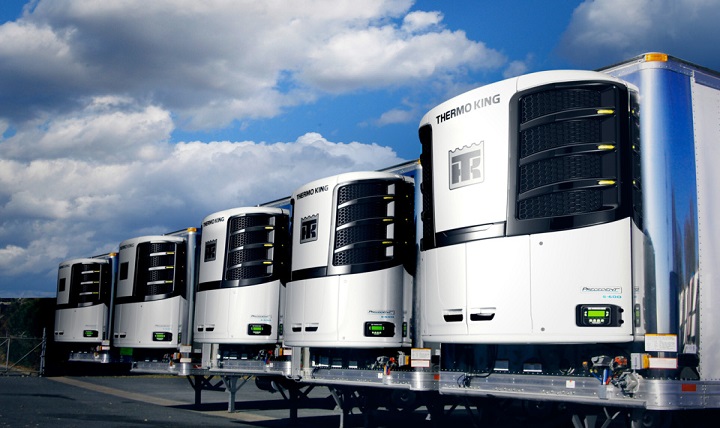The refrigerated goods transportation industry has been steadily growing for many years. Its growth has been consistent over the last several years, driven by major trends like increasing fuel costs and port security, including requirements for transportation workers’ identity credentials. With continued growth and commercial development, refrigerated goods shipping will be able to meet demand over the long term. Efficient pricing and space solutions will help to improve effective utilization and decrease overall costs.
Regulations

The Food Safety Modernization Act (FSMA) sets new requirements for refrigerated goods transportation, including equipment, training, and records. Although the rules are not mandatory, they require some new control approaches. Currently, only two firms are providing logistics support for three key FSMA requirements. Companies are sometimes exempted from these requirements if they only ship food to foreign markets.
Companies that handle this type of transportation must follow strict temperature controls. This includes training drivers to ensure proper temperature control and reporting for every shipment. This is especially important for food safety regulations requiring that temperature-controlled freight be handled properly. These regulations are also helpful for reducing costs and improving the efficiency of supply chains.
The new regulations cover measures that refrigeration transport companies must take to ensure food and medication safety during transportation. These include temperature controls, protection from cross-contact, and protection from non-food items in the same load. Some companies use data recorders and telematics to track temperature and cross-contact. Proper training and documentation of employees are also important for proper operations.
The temperature of the food is monitored throughout transportation. During loading, food products must be kept separate from non-food items and allergens. In addition to this, proper sanitation of trucks and equipment is important.
Technology

The development of technology for refrigerated goods transportation is transforming the transport industry. New technologies have revolutionized how goods are transported and monitored, improving efficiency and speed of delivery. These innovations are based on automated identification and data capture, or AIDC. These systems can help companies assess cargo quality, regulate load volume, and make fulfilment decisions.
The advancement of technology for refrigerated goods transportation has been facilitated by the need to reduce losses and improve logistics. With more people shopping online, the need for refrigerated transport has increased. As a result, governments and companies are trying to improve infrastructure in this field. The transportation of food and pharmaceutical products is a challenge in many countries, and refrigeration is necessary.
The refrigerated logistics industry focuses on the movement of perishable goods efficiently, safely, and cheaply. It uses advanced technologies that help shippers and freight forwarders keep track of their shipments with real-time updates. With these systems, companies can track their goods anywhere in the world.
The use of blockchain technology has the potential to transform the transport industry and improve the transportation of refrigerated goods. While this technology is still in its early stages, it is expected to save millions of dollars annually for transportation companies.
Importance
Refrigerated goods transportation is crucial for shippers of fast-moving products. It eliminates the risk of deterioration and damage and is essential for the safety of sensitive products. These include certain foods, dairy, fruits, and pharmaceutical products. While many may think that refrigerated transport is only necessary for a small number of goods, it is crucial for most cargo. While food is one of the most popular types of cargo transported, other goods, such as chemicals and personal care products, are also shipped using this method.
Refrigeration is essential for food safety and vital in the cold chain. Food products such as fresh produce from farms require refrigeration to keep them fresh and prevent spoilage. In addition to ensuring product quality, refrigeration also helps avoid food-borne diseases. Improper storage and transportation of these goods can compromise the health and safety of consumers, so they must be transported in refrigeration systems.
Aside from being important for maintaining food quality, refrigerated transport services also contribute to the country’s economic growth, like refrigerated transport in Perth. Companies can earn more revenue from local producers by successfully transporting these items. Additionally, they can maintain more sales to keep their businesses in the business. As a result, this helps the government through taxes and benefits.

